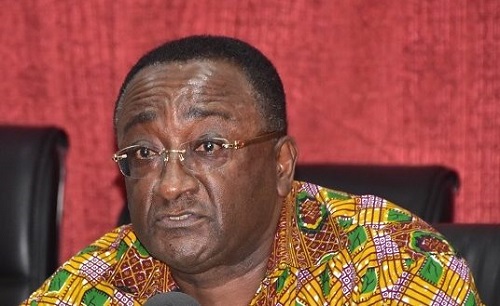Government has maintained the amount of money it pays cocoa farmers for the 2018/19 season at GH¢7,600.00 per tonne – the same as paid in the 2017/18 season, Dr. Owusu Akoto Afriyie, the Minister of Food and Agriculture, has announced.
The price, which takes immediate effect, is equivalent to GH¢475 per bag of 64 kilogramme gross weight. The main crop season will begin on 5 October.
Dr. Afriyie officially announced the price at this year’s Cocoa Day celebration in Accra, under the theme ‘Cocoa Consumption Business and Health’. The celebration was aimed at recognising the efforts of cocoa farmers, to sensitise the public on the health and nutritional benefits of cocoa, and encourage the citizenry to consume cocoa daily.
Dr. Afriyie said the price is maintained despite a drastic decline in cocoa prices on the international market.
The price of cocoa on the international market has witnessed a dramatic decline to US$2,100 from US$3,000 per tonne in recent months.
Dr. Afriyie said government had, however, decided to maintain the price in order to eliminate harsh effects of the drastic decline in international cocoa prices on earnings of the hardworking cocoa farmers.
He explained that government has intensified measures, including hand-pollination and small-scale irrigation in cocoa, aimed at increasing the productivity of cocoa farms and improving efficiency in the operations of Ghana Cocoa Board (COCOBOD).
Other measures included rehabilitation and replanting of over-aged cocoa farms, and farms that had been affected by the swollen shoot virus disease.
Dr Afriyie said government is working with COCOBOD to implement consumption measures, and urged local processors to be innovative and creative to boost business.
Mr. Joseph Boahen Aidoo, Chief Executive-COCOBOD, said in the bid to enhance local consumption, government is encouraging domestic processing in order to raise per capita consumption to sustain the price.
Thus, he said, COCOBOD and government are close to rolling out inclusion of chocolate drinks in the School feeding programme, to benefit over one million schoolchildren during the pilot phase.
Mr. Aidoo said discussions are ongoing with stakeholders to conclude the modalities for rolling out the programme.
“We trust that as we intensify local value addition and consume more cocoa, we will gradually insulate our economies from any price volatility,” he said.
Mr. Aidoo indicated that Ghana and Cote d’Ivoire are working together to streamline marketing, economics, production and research activities of cocoa, to enable both countries reap the full benefits of trading in the crop.
He said COCOBOD has made tremendous progress in its Productivity Enhancement Programmes (PEPs), with marvelous results in the combined effects of the mass-pruning, hand-pollination, fertiliser application, mass-spraying and other interventions.
“If Cocoa farmers collaborate with extension officers, adhere to good agronomic practices and adopt the PEPs, yield per acre will increase from the current average of 450kg per acre to over 1,000kg,” he stated.
Production target
COCOBOD is confident of purchasing over 900,000 tonnes of beans during the 2018/2019 crop year.
Ghana operates a two-cycle cocoa year, consisting of a 33-week main crop (October-June) that is mainly exported to Europe and Asia, and the minor light crop (11-week) which is discounted to local processing firms including the state-owned Cocoa Processing Company (CPC).
Ghana produced an unprecedented one million tonnes of cocoa during the 2010-11crop-year, thanks to good weather and improved farming techniques.
Ghana is the second-biggest producer of cocoa in the world, with an estimated 800,000 farmers said to benefit directly from cocoa production.





